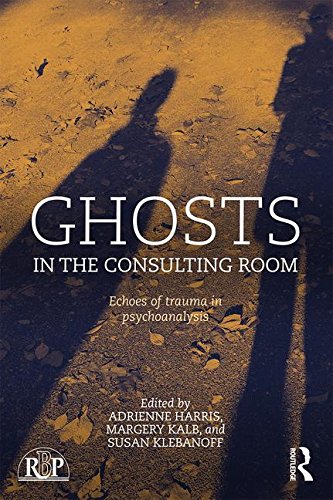

Most ebook files are in PDF format, so you can easily read them using various software such as Foxit Reader or directly on the Google Chrome browser.
Some ebook files are released by publishers in other formats such as .awz, .mobi, .epub, .fb2, etc. You may need to install specific software to read these formats on mobile/PC, such as Calibre.
Please read the tutorial at this link: https://ebookbell.com/faq
We offer FREE conversion to the popular formats you request; however, this may take some time. Therefore, right after payment, please email us, and we will try to provide the service as quickly as possible.
For some exceptional file formats or broken links (if any), please refrain from opening any disputes. Instead, email us first, and we will try to assist within a maximum of 6 hours.
EbookBell Team

5.0
100 reviewsGhosts in the Consulting Room: Echoes of Trauma in Psychoanalysis is the first of two volumes that delves into the overwhelming, often unmetabolizable feelings related to mourning. The book uses clinical examples of people living in a state of liminality or ongoing melancholia. The authors reflect on the challenges of learning to move forward and embrace life over time, while acknowledging, witnessing and working through the emotional scars of the past.
Bringing together a collection of clinical and theoretical papers, Ghosts in the Consulting Room features accounts of the unpredictable effects of trauma that emerge within clinical work, often unexpectedly, in ways that surprise both patient and therapist. In the book, distinguished psychoanalysts examine how to work with a variety of ‘ghosts’, as they manifest in transference and countertransference, in work with children and adults, in institutional settings and even in the very founders and foundations of the field of psychoanalysis itself. They explore the dilemma of how to process loss when it is unspeakable and unknowable, often manifesting in silence or gaps in knowledge, and living in strange relations to time and space.
This book will be of interest to psychotherapists and psychoanalysts, as well as social workers, family therapists, psychologists, and psychiatrists. It will appeal to those specializing in bereavement and trauma and, on a broader level, to sociologists and historians interested in understanding means of coping with loss and grief on both an individual and larger scale basis.